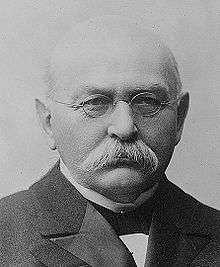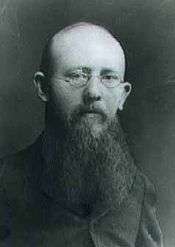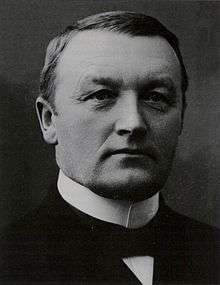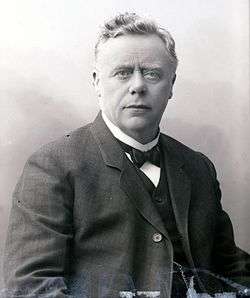1912 Norwegian parliamentary election
Parliamentary elections were held in Norway on 21 October 1912, with a second round held between 4 and 11 November.[1] The result was a victory for the alliance of the Liberal Party and the Labour Democrats, which won 76 of the 123 seats in the Storting.
| |||||||||||||||||||||||||||||||||||||||||||||||||||||||||||||
All 123 seats in the Norwegian Parliament 62 seats were needed for a majority | |||||||||||||||||||||||||||||||||||||||||||||||||||||||||||||
|---|---|---|---|---|---|---|---|---|---|---|---|---|---|---|---|---|---|---|---|---|---|---|---|---|---|---|---|---|---|---|---|---|---|---|---|---|---|---|---|---|---|---|---|---|---|---|---|---|---|---|---|---|---|---|---|---|---|---|---|---|---|
| |||||||||||||||||||||||||||||||||||||||||||||||||||||||||||||
| |||||||||||||||||||||||||||||||||||||||||||||||||||||||||||||
Results
| Party | Votes | % | Seats | +/– |
|---|---|---|---|---|
| Liberal Party | 195,526 | 40.0 | 70 | +24 |
| Labour Democrats | 6 | +4 | ||
| Conservative Party | 162,074 | 33.2 | 20 | –21 |
| Free-minded Liberal Party | 4 | –19 | ||
| Labour Party | 128,455 | 26.3 | 23 | +12 |
| Riksmål Party | 1,033 | 0.2 | 0 | New |
| Teetotaler Party | 884 | 0.2 | 0 | 0 |
| Independent Left Party | 528 | 0.1 | 0 | 0 |
| Church Party | 367 | 0.1 | 0 | 0 |
| Wild votes | 36 | 0.0 | – | – |
| Invalid/blank votes | 6,254 | – | – | – |
| Total | 495,157 | 100 | 123 | 0 |
| Registered voters/turnout | 809,582 | 65.9 | – | – |
| Source: Nohlen & Stöver | ||||
gollark: ++magic py await ctx.send("<@263493613860814848> is bees")return None
gollark: ...
gollark: ++magic py `await ctx.send("@Finianb1#0001 is bees")return None`
gollark: Wondrous.
gollark: ++magic py await ctx.send("<@263493613860814848> is bees")
References
- Dieter Nohlen & Philip Stöver (2010) Elections in Europe: A data handbook, p1438 ISBN 978-3-8329-5609-7
This article is issued from Wikipedia. The text is licensed under Creative Commons - Attribution - Sharealike. Additional terms may apply for the media files.



